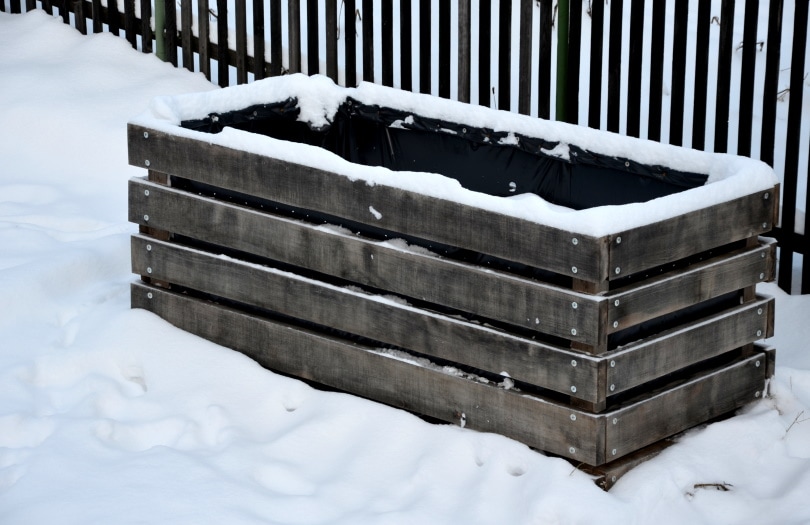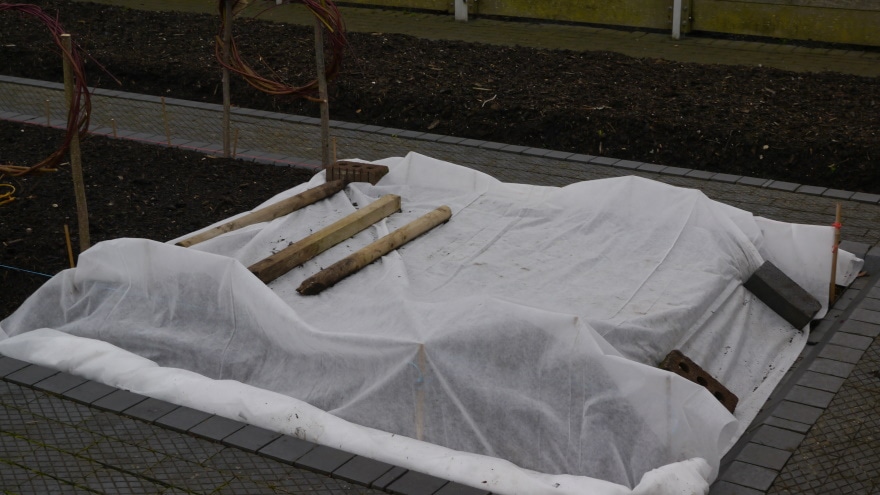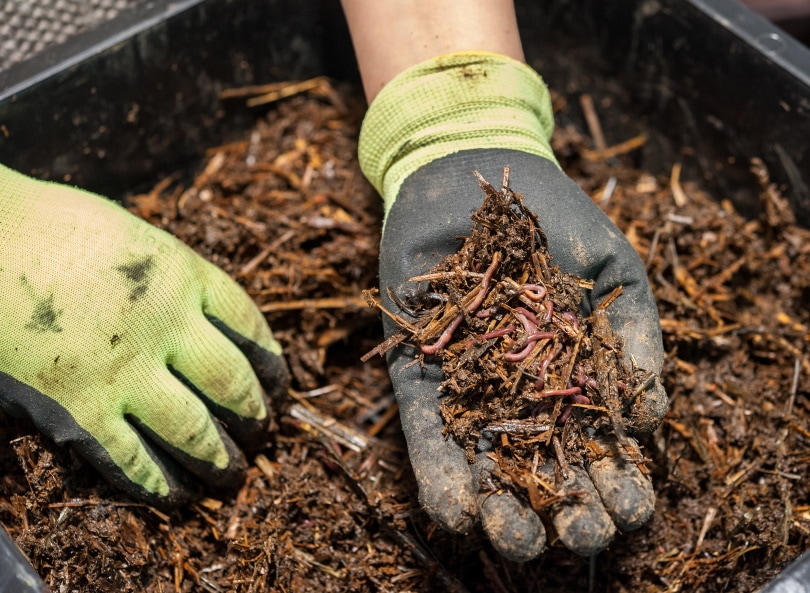Can You Compost In The Winter? Are There Restrictions?
-
Pete Ortiz
- Last updated:

Composting is a great way to naturally get soil and fertilizer for your garden while cutting down on food waste. At home, composting is extremely popular. However, when the days start to get shorter and colder, many people pack up their composting kits and wait for spring to come back. Some gardeners even tell each other that you can’t compost in the winter, so don’t even bother.
It is true that not much grows in the winter, but that doesn’t mean you have to uproot your compost pile just because it is cold out. Can you compost in the winter? The answer is an absolute yes. Here is what to expect if you plan on composting during the winter months.
Your Compost Will Continue To Develop In The Winter
To be effective, a compost pile needs air, moisture, heat, and composting material. In most environments, this means creating a simple pile, hole, or bin with the required inputs. In the winter, many of these factors decrease. The air gets cold and dry, and the sunlight stops shining as strongly. While none of this sounds good for composting, it doesn’t stop the composting process or ruin your current compost. All the winter does is slow down composting.
So yes, you can compost in the winter but do not expect quick results. Things that took a couple of weeks to compost in the summer could take twice as long to decompose in the winter. But that is perfectly alright. There is no need to restart your compost every year because you think that the winter is not good for the composting process.
Your compost will continue to develop in the winter, and by the end of the season, you should have some great results to add to your spring garden beds. While composting merely slows in the winter, there are some tips and tricks to help it succeed as best as possible during the coldest months of the year.
4 Tips For Composting In The Winter
1. Try Not To Let Your Compost Freeze
A lot of people already keep their compost covered, but it is a good idea to cover your compost in the winter. Covering the pile will help prevent it from freezing. Freezing temperatures will slow composting down even further. Even a simple lid or tarp can sometimes be enough to keep the compost just about that 32-degree threshold. Even if the compost freezes, it is not that big of a deal, but it can add to the slow composting rates already prevalent in the winter.

2. Add Moisture If Needed
Winter can be very dry in some places, and the dry air can cause your compost to lose moisture. Dry compost will slow down to a crawl and sometimes even stop, so adding a little bit of moisture to keep it going can be beneficial. You do not need to soak the compost, but ensuring that there is water in the pile will go a long way.
3. Add Worms
Adding worms to any compost can be a big help, including in the winter. Worms help facilitate the composting process, and compost with worms degrades faster and produces better soil. Worms can live in the winter, and as long as your compost pile is deep enough to retain heat in the center, the worms will move into your outdoor winter compost without complaint.

4. Consider Moving Your Compost Inside
Your compost doesn’t necessarily have to sit on your kitchen counter but moving compost inside during the winter can help it continue to thrive. Compost bins can be moved into a shed or garage with ease. The warmer temperatures and lack of weather will keep the compost chugging along at a good pace even when the thermometer drops. Cold, dry temperatures also help to keep smells to a minimum so the compost won’t be as smelly when it’s inside.
Related Read: Can You Compost Dog Poop? What You Need To Know
Things To Avoid While Composting In Winter
While it may seem like common sense to compost some common wintery items, not everything should be dumped into a cold compost pile. Dead logs or branches more than an inch in diameter should not be composted. Do not put in any kind of evergreen clippings or waste. That means no Christmas tree parts, no juniper, no holly, and no mistletoe. Even though these types of plants are common in the winter, they will throw off the balance of your compost pile and cause it to slow down or even stop composting completely.
Whatever you were composting during the warm months should continue to be composted during the winter. Do not change your habits just because the season has changed. If you compost kitchen waste, coffee grounds, or manure, keep doing that. You do not need to go and seek out new things to compost during the winter. Doing so will only throw off your carefully balanced pile and reduce yields for the spring planting.
Related Read: Can You Compost Corn Cobs? What Should You Expect?
Conclusion
Don’t let the uninitiated fool you. Compost can happen during the winter. In fact, if you follow these tips and tricks, there is no reason you won’t have a full bin of winter compost fresh and ready for spring when the temperatures begin to warm back up. Expect winter compost to proceed slower with less noticeable results than summer compost, but the process will continue, rain or shine, snow, sleet, or hail.
Featured Image Credit: Beekeepx, Shutterstock
Contents


